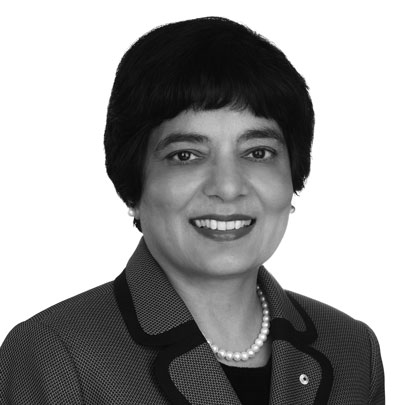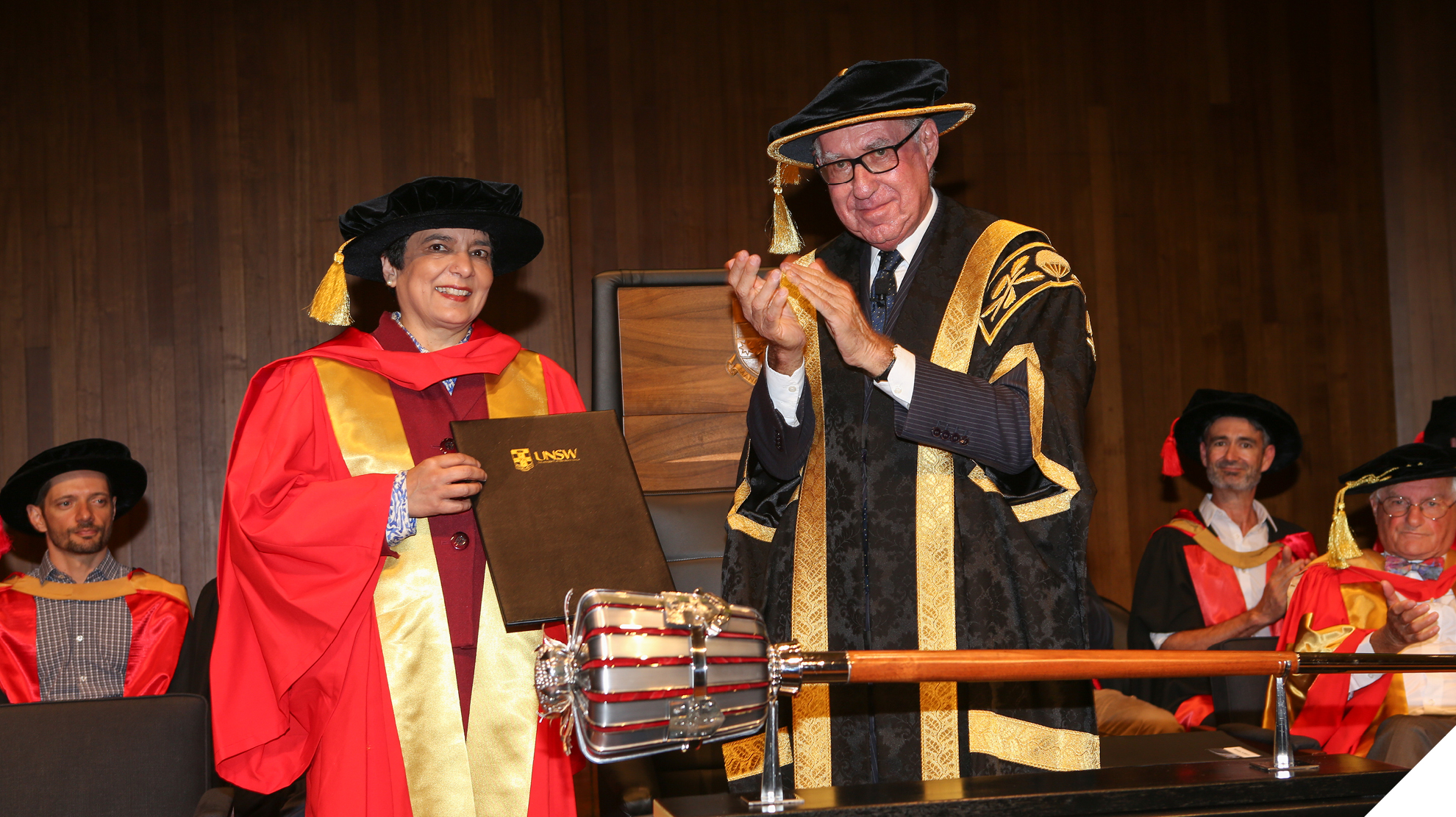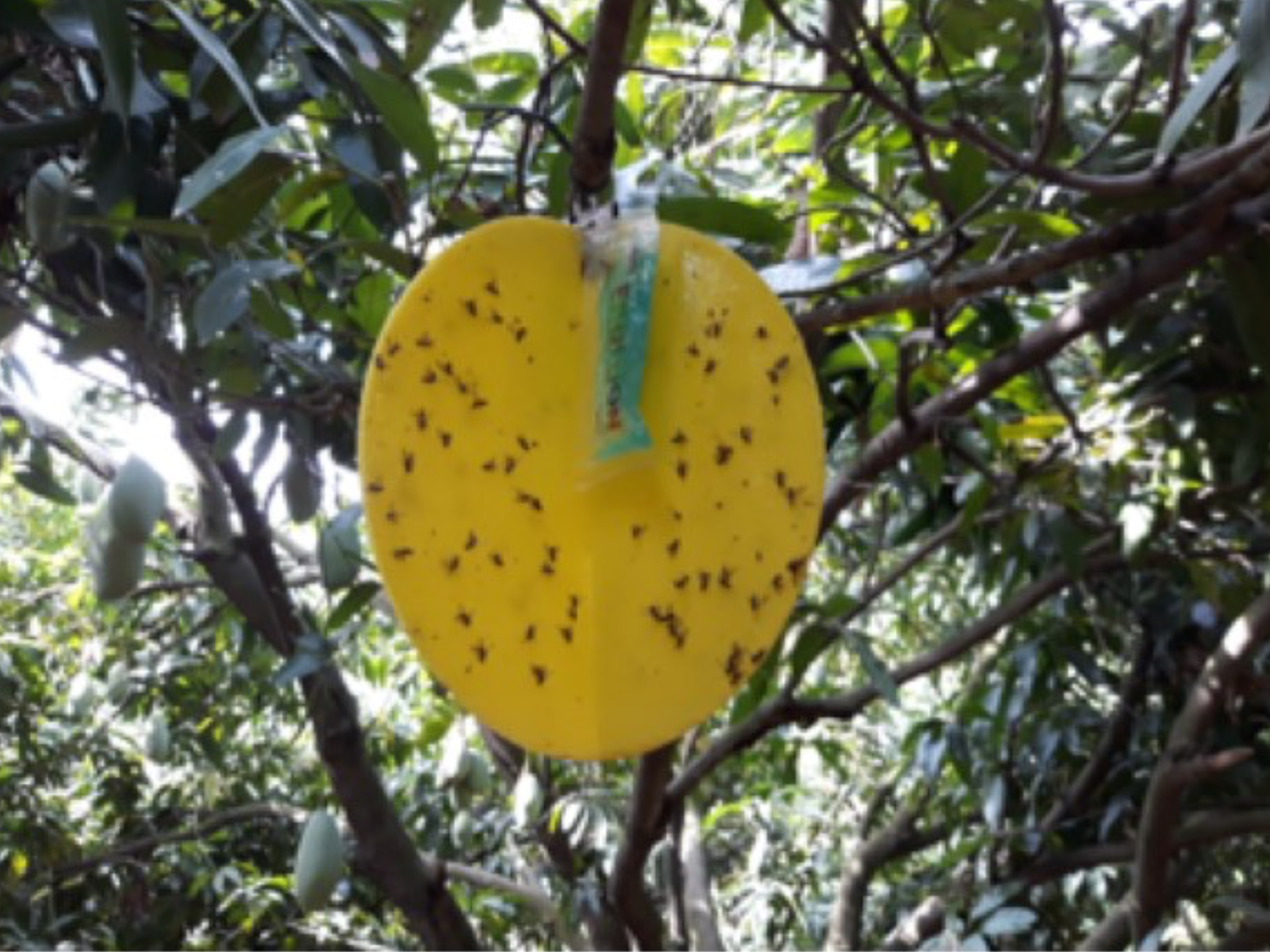We are the changemakers
Extract from an address by Dr Marlene Kanga AO FTSE FREng on the occasion of the University of New South Wales Graduation Ceremony and Conferral of her Doctor of Engineering Honoris Causa on 24 March 2025.

Extract from an address by Dr Marlene Kanga AO FTSE FREng on the occasion of the University of New South Wales Graduation Ceremony and Conferral of her Doctor of Engineering Honoris Causa on 24 March 2025.


When I first went to study chemical engineering, I went for one reason: I enjoyed mathematics and chemistry. I had little understanding of the role of engineers and the impact that engineering can have on the world. Over the years I have realised that engineers have the force — we are the change makers who not only have the vision but also the ability and the skills to make these a reality — to change the world, for better or worse.
I am unashamedly biased in my view, as a chemical engineer who is passionate about engineering and enjoys it very much.
Engineers have been innovating and changing the world for centuries. The early civil engineers built the first urban settlement in the Indus valley at Mohenjo-Daro around 2600 BC, with rectangular street grids, grand buildings and public baths. The Roman engineers developed many of the cities of Europe from Rome to London.
The Industrial Revolution in the 19th century in Europe was driven by inventions like the steam engine which reshaped the world. Steam engines led to rail networks and industrialisation, jet engines led to global travel, and the first computers eventually enabled global connections and access to vast amounts of information.
All this has been made possible with science, technology and engineering. The creativity of engineers changed the world, affecting the quality of life of everyone in most parts of the globe.
Engineers are transforming our world at an unprecedented pace. You have probably seen the changes in your time at university and the changes will continue to accelerate. This means of course that you will never be short of interesting and challenging work. So travel lightly – you can take your skills with you and see the world.
However, it’s not only important to do great technical work. We engineers also have to communicate more, so that the community can understand that engineers are key to addressing so many of the challenges that the world faces. I have done a little bit about this by successfully leading the proposal, as President of the World Federation of Engineering Organisations from 2017 to 2019 for UNESCO to declare 4 March as World Engineering Day for Sustainable Development. Now celebrated by millions around the world. My message has been, “If you want to change the world, become an engineer”.
So here you are with the necessary skills and abilities to make a difference – beyond what you think you are capable of. My advice to you all as you graduate today is to realise your power and have a long-term vision of your goals. Engineering is endlessly challenging, always requiring you to think differently and to innovate. I hope that every one of you has a lot of fun and enjoys the challenges that you encounter. Most importantly, I hope that you will all strive to make a difference for a better, peaceful and sustainable world.


Image sources: iStock; Unsplash (ThisIsEngineering)thisisengineering.org.uk is a multi-year campaign led by the Royal Academy of Engineering in partnership with Engineering UK and major engineering organisations. The aim is to show more young people what engineering really looks like, and how it could be a exciting and rewarding path in the future. Part of the project is to create a free library of photographs of real engineers.
Dr Kanga is a recognised leader of STEM organisations. She was the 2013 National President and Board Chair of Engineers Australia and the 2017-2019 President and Board Chair of the World Federation of Engineering Organizations, a UNESCO affiliate, representing 100+ nations and more than 30 million engineers. From 2011-2017, she was a vice-president of the International Network for Women Engineers and Scientists.
Her significant international achievements include successfully founding World Engineering Day for Sustainable Development on 4th March, with unanimous approval for the proposal by the UNESCO member states and initiating and leading the review of international engineering education benchmarks to reflect contemporary values and approaches including diversity and inclusion. She continues to lead advocacy for more women in STEM at UN Women and the Commission on the Status of Women.
Elected 2014

In Dr Maryam Farzadkhoo's work as a floodplain scientist, she engages with a diverse range of experts from engineers, hydrologists and policy makers to local communities. Solving these complex challenges wouldn’t happen without these collaborations.

Withdrawal of permits for fruit fly pesticides resulted in the need for alternatives that were safe to humans and the environment. Professor Richard Drew built upon comprehensive research in species identification, ecology and species biology to develop a world-first technology, designed to attract and kill mature egg-laying female fruit flies.